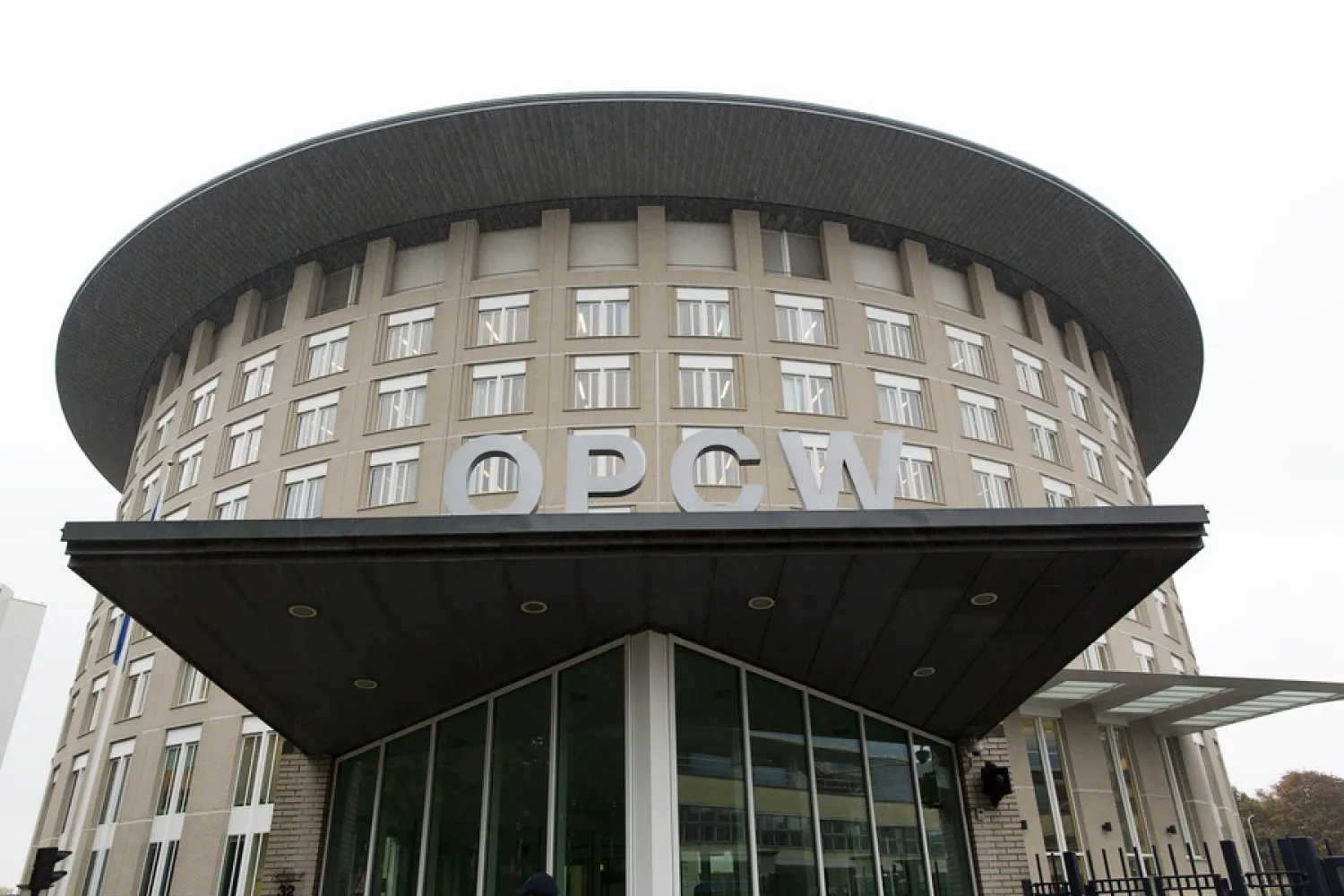World powers voted on Wednesday to grant the Organization for the Prohibition of Chemical Weapons (OPCW) the authority to assign blame in chemical attacks in Syria.
After two days of tense talks, the British delegation to the Organization for the Prohibition of Chemical Weapons (OPCW) rejoiced on Twitter that its proposal "has passed with votes 82 in favor. 24 No."
The office of British Foreign Secretary Boris Johnson, who traveled to OPCW headquarters in The Hague on Tuesday to push for the proposal, said the organization "will immediately start work to help identify those responsible for chemical attacks in Syria."
"It fills a crucial gap left when the United Nations Security Council was prevented from renewing its own investigation in November," a statement from Johnson's office said, referring to objections Russia raised last fall to the OPCW work in Syria.
Other delegates said applause broke out at the rare special session of the OPCW's top policy-making body, held in The Hague which had been addressed by Johnson on Tuesday.
"It's passed! Australia proud to cosponsor with @UK_OPCW decision to attribute chemical weapons attack," Canberra's ambassador Brett Mason said in a tweet.
Norway tweeted that the British-led proposal had been "overwhelmingly" adopted, with ambassador Martin Soerby praising OPCW members for taking "a decisive and necessary decision to expose the perpetrators of chemical attacks."
According to the text, seen by AFP, the OPCW's secretariat "shall put in place arrangements to identify the perpetrators of the use of chemical weapons in the Syrian Arab Republic."
British ambassador to The Hague, Peter Wilson hailed "an important day" saying the move was "a critical step forward in ensuring the chemical weapons abuse stops."
OPCW director general Ahmet Uzumcu and his successor, who takes over in July, were also mandated to draw up proposals to give the body broader powers to identify those unleashing chemical weapons in any other country, if governments ask for help.
Those proposals will go to the next meeting of state parties in November for a vote, Wilson told reporters.
"The principle has been established that there should be a general attribution arrangement as well as a clear flick of the switch which allows the director general to proceed with attribution in Syria," he said.
Both Moscow, the main ally of Syrian regime chief Bashar Assad, and Damascus, had vehemently opposed the move. They stand accused by the international community of using chemical weapons in recent months.
Moscow accused Britain of manipulating its allies, saying earlier Wednesday that "deception is perhaps the word of the day".
Britain had failed to provide any evidence that Moscow was behind the nerve agent attack on Russian ex-spy Sergei Skripal and his daughter in Salisbury in March, the Russian embassy said in a tweet.
The vote comes as the OPCW is also due to publish a highly-anticipated report into a chlorine and sarin gas attack in the Syrian town of Douma.
Wilson confirmed the OPCW now had the power to identify who could be behind the April attack in Douma in which medics and rescuers said 40 people were killed.
Late last year, Russia had wielded its veto power at the UN Security Council to effectively kill off a joint UN-OPCW panel aimed at identifying those behind suspected chemical attacks in Syria.









